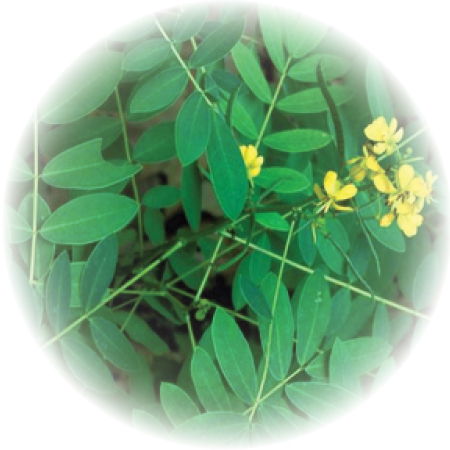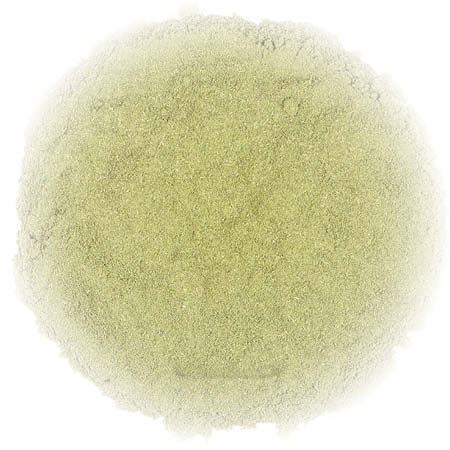Senna Leaf, Powder (Cassia angustifolia) – Dried Herb, Organic
$9.22 – $92.20
Senna is a perennial shrubby plant that reaches half to one meter in height. It has yellow flowers that ripen into oblong, flat fruit and the pale-green stem that have long spreading branches with leaflets varying in 4 to 6 pairs. Senna is in the Fabaceae family or Legume family which includes Astragalus, Cinnmon, Cardamom and Fenugreek.
Senna is native to Egypt mostly in the Nubian region, near Khartoum (Sudan), where it is cultivated commercially. It also grows in India and Somalia. Senna’s common name comes from the Hebrew ketziah or kiddah (cassia), which means “peeled back”, possibly referring to Senna’s easily peeled bark. Senna traditional history dates to two Arab physicians during the 9th century and once in use, Senna popularized rapidly to Western Europe and the rest of the world.
In the many traditional systems of medicine including Ayurvedic, Traditional Chinese, Unani and European and Western herbal medicine Senna has been used for occasional constipation during its long history.
Senna encourages the bowels by inhibiting the involuntary non-striated muscles that retain stool and stimulating the smooth peristaltic muscles that push stool through the intestine. Senna stimulates intraluminal water and electrolyte secretion, which would help to soften the stool. In Chinese medicine a purgative’ herbs such as Senna works by removing excess heat in the intestines and stomach.
Senna is milder in action than other botanicals such as Aloe and Rhubarb that work in a similar way.
Properties:
The taste and energetics of Senna are mild, sweet, slightly bitter, cold and drying dampness. Senna has an affinity to the large intestine and skin. For occasional constipation combine with Ginger, Fennel, Anise or Coriander.
How to use:
Add 1 to 2 grams or just a couple of leaves of Senna to one cup of boiling water. Steep for 15 minutes, strain and drink up to 1 cup per day for short term use only.
Cautions & contraindications:
Senna can cause bowel griping and pain if not used in combination with stomachic herbs such as Ginger or Fennel Seeds, or if taken in too high a dose. This herb should not be used by women who are menstruating, pregnant or post-partum depression.
Senna should not be used by people with abdominal pain (either diagnosed or undiagnosed), chronic constipation, intestinal blockage, Crohn’s disease, ulcerative colitis, appendicitis, stomach inflammation, anal prolapse or hemorrhoids.
This information is for educational purposes only and is not intended to diagnose, treat or cure any disease or illness. Please consult your healthcare provider prior to the use of this product if you are pregnant, nursing, taking medications or have a medical condition. Individual results may vary.


Reviews
There are no reviews yet.